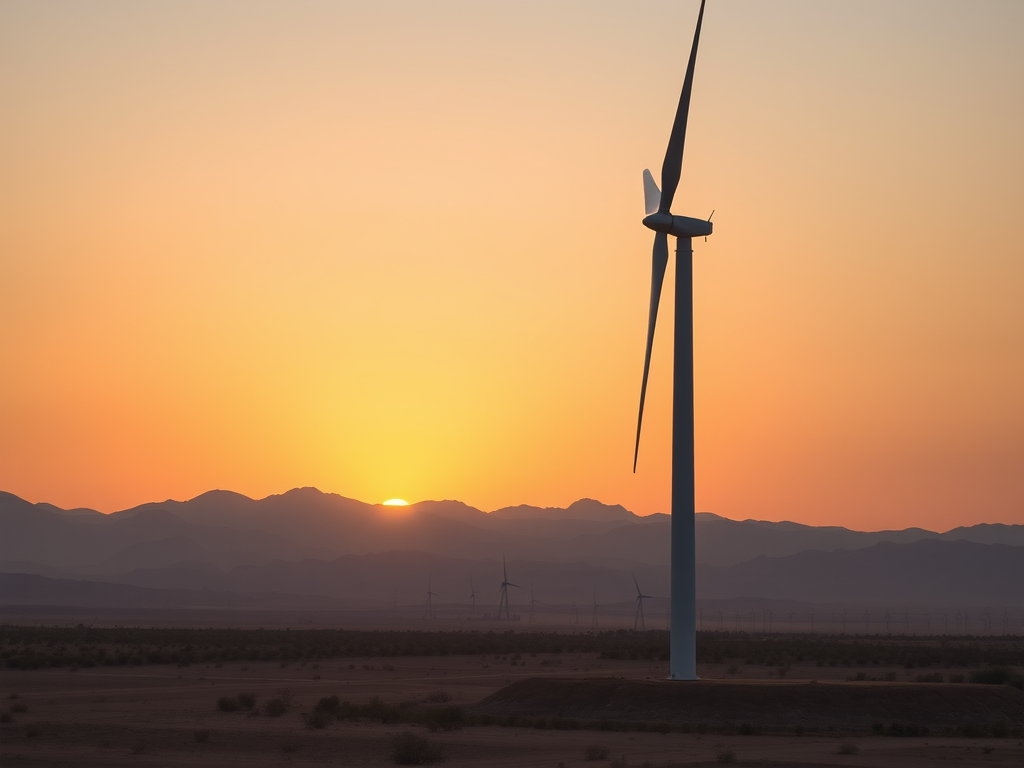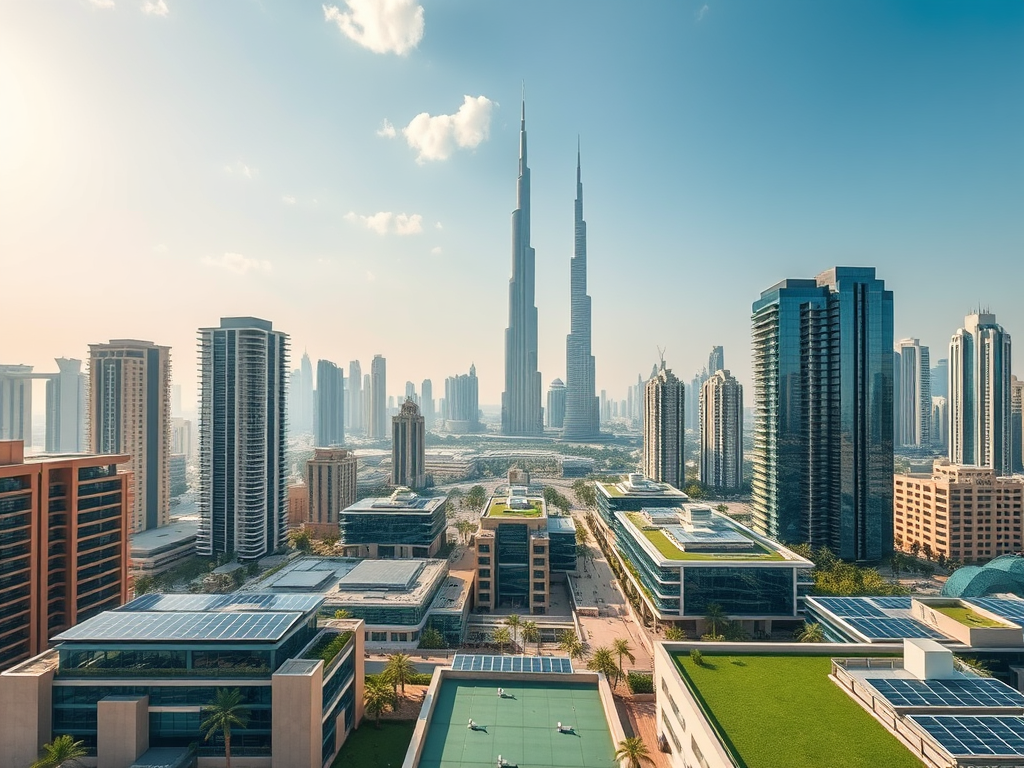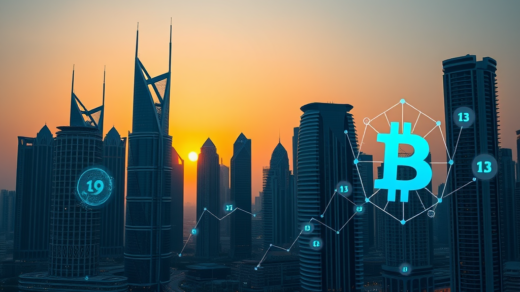Dubai is rapidly evolving as a global player in the renewable energy market, with significant investments and initiatives to increase its capacity for exporting renewable energy. This growth is driven by a combination of government policies aimed at sustainability, advancements in technology, and an increasing demand for clean energy worldwide. With projects like the Mohammed bin Rashid Al Maktoum Solar Park and various wind energy initiatives, Dubai is not only focusing on meeting its domestic energy needs but also establishing a foothold in international energy markets. The implications of this growth extend beyond economic benefits, contributing positively to global sustainability efforts.
Current State of Dubai’s Renewable Energy Sector

Dubai’s commitment to renewable energy is outlined in its Integrated Energy Strategy 2030, which aims to make renewable energy contribute 75% of the total energy capacity by 2050. The city is already making monumental strides with ambitious projects that serve as benchmarks for other countries. Key achievements include:
- Mohammed bin Rashid Al Maktoum Solar Park: The world’s largest single-site solar park.
- Investment in Wind Energy: Dubai has started to tap into wind energy sources around the Hatta region.
- Green Building Codes: Implementing strict guidelines to promote energy efficiency in construction.
- Sustainable Transport Initiatives: Introducing electric and hybrid vehicle options to reduce carbon footprint.
The diversification of energy sources is essential in ensuring a sustainable and resilient energy landscape in the UAE, proving crucial to meet both local demand and export opportunities.
Investment Incentives and Government Initiatives

The Dubai government has rolled out multiple incentives to attract local and international investments in renewable energy. These incentives are designed to create a more favorable environment for businesses looking to enter the renewable energy sector. Some of the prominent initiatives include:
- Tax Incentives: Reduced tax rates for companies operating in renewable energy.
- Public-Private Partnerships: Collaborations facilitating the funding and execution of large-scale renewable projects.
- Funding Programs: Establishment of funds to support startups and green technology innovations.
- Research and Development Initiatives: Government backing for research projects focusing on renewable technologies.
- International Partnerships: Agreements with foreign countries to promote technology exchange and joint projects.
These measures have significantly accelerated the growth of the renewable energy export industry, establishing Dubai as a competitive player on the global stage.
While Dubai is making commendable progress in renewable energy, several challenges remain. These challenges include infrastructure limitations, regional competition, and the need for technological advancements. However, they also present opportunities that can propel the industry further:
- Technological Innovation: Investments in new technologies like energy storage can significantly enhance the reliability of renewable energy exports.
- Market Diversification: Expanding into new regions and markets can reduce dependency on any single market.
- Focus on Research: Enhanced research into emerging technologies and practices can lead to innovations that lower costs and improve efficiency.
- Collaboration: Forming alliances with established global players can help overcome local challenges and ensure the transfer of knowledge.
Environmental Impact and Global Leadership
The consequences of Dubai’s shift towards renewable energy extend beyond economic factors, making significant strides towards environmental sustainability. As a leader in the Middle East, Dubai is influencing other countries in the region by showcasing the viability of renewable energy. This leadership role can lead to various benefits, including:
- Reduction of Carbon Footprint: Mitigation of climate change impacts through decreased reliance on fossil fuels.
- Improved Air Quality: Transitioning to cleaner energy sources leads to less pollution.
- Promoting Sustainability: Encouraging other nations to invest in renewable energy solutions.
- Ecotourism: Enhancing the attractiveness of Dubai as a destination committed to sustainability.
Participating in global renewable energy forums and agreements further solidifies Dubai’s position as a proponent of sustainable energy practices worldwide.
Итог
Dubai’s renewable energy export industry is poised for comprehensive growth, characterized by substantial government support, technological advancements, and a commitment to global sustainability. The UAE is transforming its energy landscape, making long-term investments while simultaneously focusing on international cooperation to foster a robust renewable energy market. As the demand for clean energy continues to rise, Dubai’s strategic initiatives will likely establish it as an influential player in the renewable energy market, paving the way toward a sustainable future.
Часто задаваемые вопросы
1. What are the major renewable energy sources in Dubai?
Dubai primarily focuses on solar and wind energy, with projects like the Mohammed bin Rashid Al Maktoum Solar Park exemplifying its commitment.
2. How does the Dubai government promote renewable energy?
The government offers various incentives, including tax breaks, public-private partnerships, and funding programs to attract investments in the sector.
3. What are the sustainability goals of Dubai?
Dubai aims to have 75% of its energy capacity derived from renewable sources by 2050 as per its Integrated Energy Strategy 2030.
4. How does renewable energy export benefit Dubai’s economy?
Renewable energy exports diversify Dubai’s economy, create job opportunities and position the emirate as a leader in sustainable industries globally.
5. What challenges does Dubai face in the renewable energy sector?
Challenges include infrastructure limitations, regional competition, and a necessity for continuous technological advancements, which can be addressed through innovation and collaboration.


